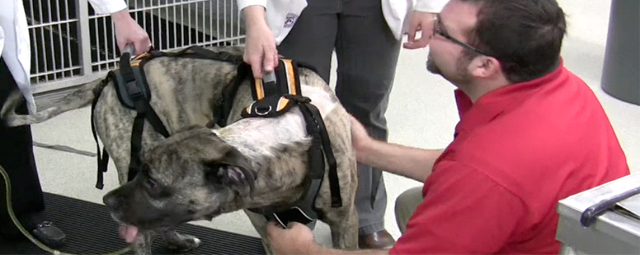Talking To Your Vet About Anesthesia
If you are thinking about anesthesia for your pet, you are probably having a hard enough time wrapping your head around what is wrong. When things go badly for our pets, we cannot help but jump to terrible conclusions and feel overcome with worry. The truth is that your pet is in capable hands, and you should learn as much as you can about any procedures that he will undergo so that you can prepare him before the surgery and make him comfortable after it.
Before the Anesthesia
Before your pet is put under, your vet will need a complete history of any past medical procedures and problems. This paints a helpful picture of your pet’s health, and your vet can see things in your answers that you might not think are useful but are invaluable to him. For instance, lack of exercise or a low tolerance of it might indicate a weak heart or lungs. There could be abnormal functioning or development of these organs, which could lead to problems with anesthesia.
Prior to the Anesthetic Agent
 Before the anesthesia is actually given, your vet might administer a sedative. This allows less anesthesia to be used; the less that needs to be used, the fewer risks for your pet. Pets waken more easily when less anesthesia is used during surgery. Once the dog has been sedated, an IV is placed into a vein to act as the lifeline. The vet will be able to monitor everything about the dog’s condition through it.
Before the anesthesia is actually given, your vet might administer a sedative. This allows less anesthesia to be used; the less that needs to be used, the fewer risks for your pet. Pets waken more easily when less anesthesia is used during surgery. Once the dog has been sedated, an IV is placed into a vein to act as the lifeline. The vet will be able to monitor everything about the dog’s condition through it.
Once the anesthesia is administered, your vet will monitor him closely. He will regulate his blood and his breathing via a tube that is inserted to deliver the anesthesia gas. Upon completion of the procedure, the amount of anesthesia is reduced as the animal regains consciousness. Once he can swallow on his own, he is moved to recovery.
Concerns of Anesthesia
If you are worried, ask your vet to go over the procedure with you, and you may feel more at ease. Anesthesia is a dangerous drug, and no two animals tolerate it the same way. The best thing you can do is be prepared and make your dog comfortable after the surgery in a dim and quiet part of the house. He could take days to fully recover from the anesthesia alone. He might be confused and seem withdrawn or frightened. Don’t have any visitors and offer plenty of fresh water and trips to go potty. Other than that, give him all the time he needs to recover and feel well.






